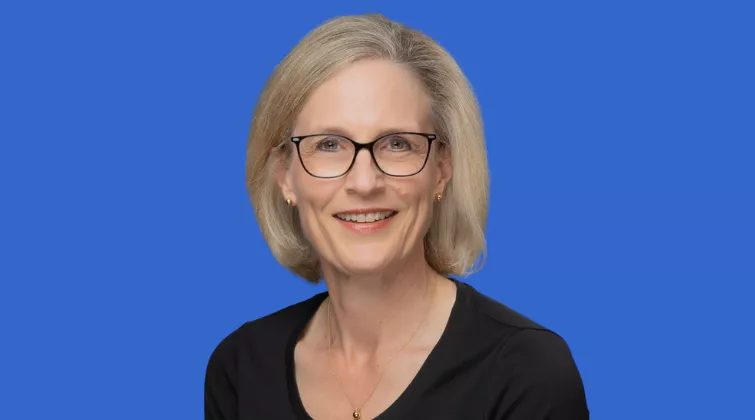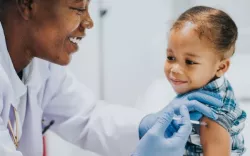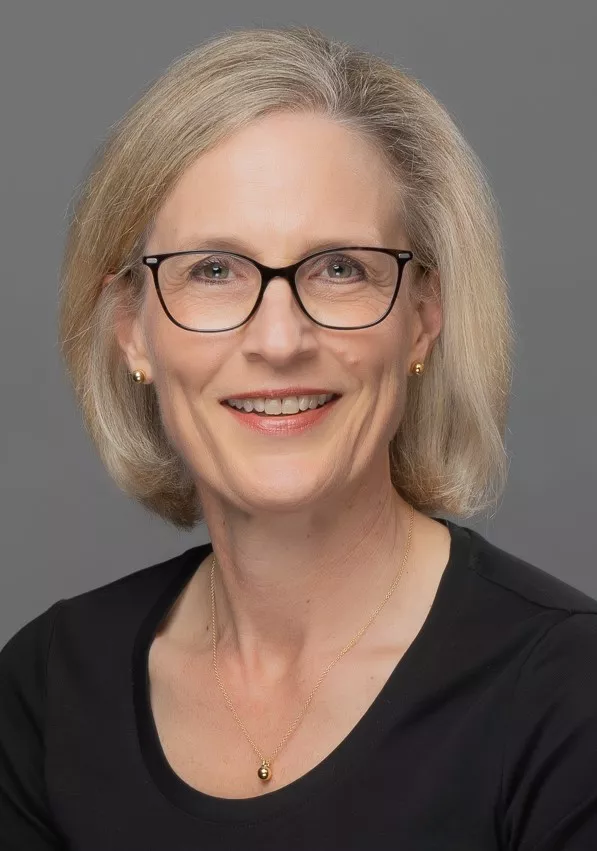
I have a confession. A serious discussion took place in my home last weekend about whether we could put the central heating on. It seemed extraordinary that this was a topic of conversation in mid-August but as we sat and shivered and watched the driving rain and howling wind outside, it seemed like a legitimate question! Common sense eventually did prevail, and we were all persuaded to put on extra jumpers and see it as a good excuse to make hot chocolate. However, the extraordinary contrast between the UK summer and the heat and fires in southern Europe, is a sobering reminder of how much our climate is changing.
If you are based outside the UK, don’t forget to complete our short survey and tell us about the impacts of climate change you are seeing, and how it’s affecting paediatrics and child health.
Clean Air Fund with new opportunities for clinical fellowships
I can now share the exciting news that we have been awarded with a grant to take forward an exciting new partnership with the Clean Air Fund - a global philanthropic organisation who have the ambition to create a future where everyone breathes clean air. Our dedicated Climate Change Working Group have achieved so much since their inception, allowing us to become established as a leading voice in the health and climate space. I am delighted that this new partnership, which we have named “Safeguarding a clean air future for children and young people”, will enable us to continue and expand the important work we do around tackling climate change for the next two years.
A particularly exciting part of this funding is that we are now able to recruit to dedicated Clinical Fellow posts to support our climate change activity. The details of these roles will be available in the coming weeks, and I’d encourage you to keep an eye on our website if you are interested in applying.
The importance of vaccines
The cool autumn-like weather we have been experiencing is helping me focus on our preparations for winter. The most pressing issue is the significant risk of a measles outbreak in London and possibly elsewhere. London has the lowest rates of MMR uptake nationally and based on current vaccination coverage, it is possible that an outbreak in London could vary between 40,000 and 160,000 cases, placing a significant pressure on NHS services.
Our immunisations lead at the College, Professor Helen Bedford, has helpfully laid out some changes to the childhood immunisation schedule. It isn’t too late to act to prevent a major outbreak in London and there are huge efforts afoot to reach children and young people, up to the age of 25 years, who are either entirely unimmunised or have only received one dose of the MMR, taking lessons learned from the COVID-19 immunisation programme.

We all have a part to play in this. Firstly, please can you use every opportunity to ask your patients or their parents about their current immunisation status and give the appropriate advice if needs be. I know finding time for these conversations can be challenging. And secondly, familiarise yourself with the signs and symptoms of measles as this has, mercifully, been an infection that we seldom see in the UK. It is crucial that we are all alert to the possibility of this diagnosis.
Please also be reminded that measles in a child with dark skin looks different to the ‘typical’ textbook picture. I commend the Skin Deep website for their fantastic open-access bank of high-quality photographs of medical conditions in a range of skin tones. We cannot allow inequalities to be further deepened by a lack of awareness of how the measles rash looks on different skin colours.
Crucial back to school moment
Regular school attendance is crucially important for children's academic attainment, safety, and wellbeing. Not least, they are a key component in delivering the childhood immunisation schedule! Unfortunately, we are learning that the pandemic has led to significant disruption in school attendance around the world and the figures for England are concerning, with 22.3% of children persistently absent from school in the last academic year, which is twice as high as pre-pandemic.
There is good evidence to show that over half of children who have at least one day of absence in the first week of term go on to become persistently absent. So the picture is worrying but we can all play a part in helping limit the number of days missed. I realise we are so desperately pressed for time in clinics but taking the opportunity to talk to your patients and their families about the importance of going to school and consider whether you can give advice about the kinds of situations that genuinely justify time off school – as well as when it is safe to go. The NHS’s ‘Is my child too ill for school?’ webpage is a helpful guide for these conversations. If possible, please see if you can arrange appointments at times that cause the least disruption to the school day. We want the September ‘back to school’ moment to mark the beginning of a concerted effort to improve school attendance nationally.
Research funding opportunities database
There are moments in my work as College President that are inspiring and humbling. I had one of these encounters recently when I met up with Howard Dove who, along with others, has set up the Evie Dove Foundation, in honour of his daughter Evie. Evie died at the age of 13 with a brain tumour and the Foundation raises money to sponsor the education and training of paediatric clinicians from the whole multi-professional team. The purpose of our meeting was for Howard to help us understand what the purpose of the fund is and for us to share the opportunities it offers.
In the spirit of the generosity of both Evie Dove and the Evie Dove Foundation, I want to use this opportunity to let you know that there is this resource along with a whole database of research funding opportunities from leading local, national and international organisations, on the College website. Funding opportunities can be filtered according to paediatric clinical specialty, or for specific project requirements, including early career investigator awards, project or programme grants and fellowship awards. Please take a look as information in the database is regularly reviewed to ensure it is up to date.
Senior Member status
We have been having a good think about what it means to be a Senior Member or Fellow in the College. At the moment, according to existing regulations they are ‘an ordinary member or fellow who have declared that they have ceased to work in paediatrics and child health and have no intention of commencing any other work in paediatrics and child health’. This probably did describe the majority of Senior Members previously, but our careers have changed so much and retirement is frequently no longer a single date in the calendar, but rather a phased approach to changing ones working patterns. We have plenty of evidence at the College of how our Senior Members continue to contribute to the wider needs of children and their families in the UK and globally.
We therefore propose that a new definition, which will be taken to Council in the autumn, should include an intention to retire from any substantive post and that the individual will not work for greater that 1.5 days a week in any form of paid employment. This will hopefully ensure that members who significantly reduce their clinical commitment do not get unfairly penalised. Please be in touch with the College’s Senior Member representative, if you want to discuss further.
ST1 training guide
I remember my first day in paediatrics so clearly! I am guessing most of you do too. We had new ST1s start earlier this month in some parts of the country and many more next month. To answer some of our new starters’ questions and allay some fears, our Trainees Committee and others have put together a very useful guide. Please share this as widely as possible – along with a warm welcome to any new colleagues.
With many colleagues away at the moment on summer holidays and the August bank holiday weekend approaching in the UK, I am going to give you all a break from hearing from me for a few weeks! I’ll be back updating you with all the College and wider child health news on 8 September.
Until then, I hope you all manage some time off and do take care.
This is an updated version of a message sent to all RCPCH members who are opted in to receive College updates / professional updates. You can update your contact preferences at any time - log in to your RCPCH online account, go to My account | Your contact preferences, then make sure you've ticked College updates / professional updates.










